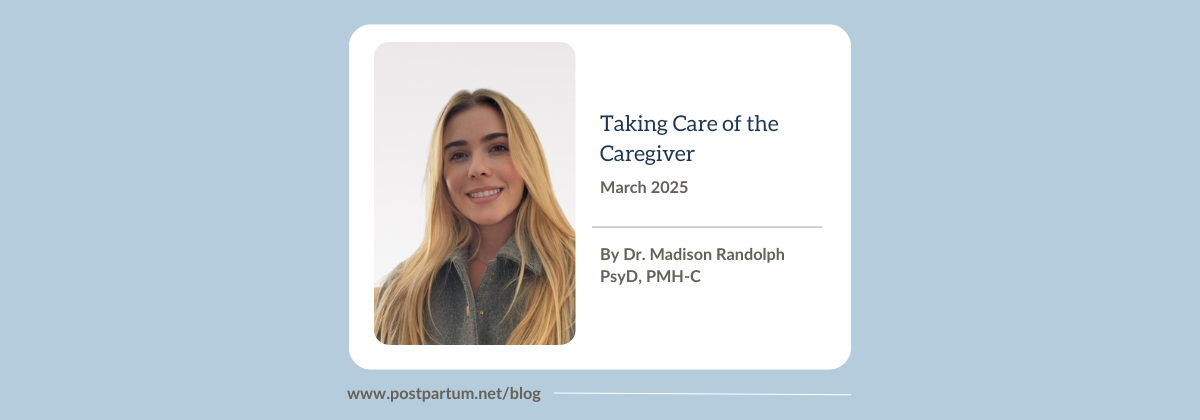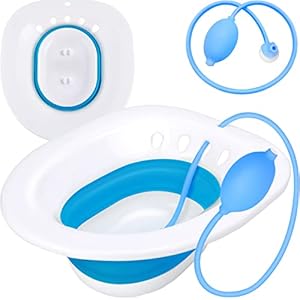
By Dr. Madison Randolph, PsyD, PMH-C
Any veteran or first-time caretaker can relate to the difficulties of caring for one more human life. The tasks related to caring for a child can really feel overwhelming and daunting. Whether or not you’re the birthing mum or dad or not, the anticipation, the lack of sleep, function transition, and pure pleasure of all of it can go away you with an empty cup. When a caregiver experiences these mentally taxing situations, their “empty cup” could forestall them from creating time for themselves. It could really feel like there isn’t any time, or that the spare time you should utilize for your self is healthier used cleansing, caring for different kids, cooking, or taking good care of different duties you haven’t been in a position to obtain all through the day.
Nevertheless, a very powerful job is lacking, the duty of taking good care of the caregiver. Many caregivers could really feel responsible taking time away to do one thing for themselves. Nevertheless, difficult that voice in your head is significant in ensuring you might be caring not just for these round you but in addition for your self. It’s not egocentric or flawed to take intentional time to care for YOU! The truth is, it’s important. As a scientific psychologist, licensed perinatal psychological well being supplier, and new mama, I’ve put collectively an easy-to-remember acronym that features probably the most helpful instruments for you, as a caregiver: CARE: Compassionate, Acts, Strengthened, Each day.
Filling up your cup
As a caregiver, the concept of filling up your individual cup, or in different phrases, taking good care of your self, could really feel like a candy however unrealistic fantasy. Nevertheless, I’m right here to let you know that it’s the most necessary factor you are able to do as a caregiver. Once you refill your cup, you may pour into the cups of these you might be caring for. Now how does this “filling up my cup” work, you could ask? It might probably start in small methods.
Mindfulness
Mindfulness is a superb approach of taking a second for your self, with out feeling like you should dedicate extra time than you’re feeling is manageable as a busy caregiver. Mindfulness could be achieved in numerous methods, via meditation, physique scans (noticing/connecting along with your physique, feelings, and bodily sensations from head to toe), strolling, consuming, studying, yoga, and even journaling. All these small, conscious acts can create a big and constructive ripple all through your life. Moreover, not solely is mindfulness an effective way to refill your cup, however research have additionally proven its effectiveness in combating stress and perinatal psychological well being issues like postpartum despair.
Train
As a busy caregiver, train could also be the very last thing in your thoughts, however it may be a helpful and useful approach of relieving destructive psychological well being signs. Train is a superb solution to care for your self each bodily and mentally. It might probably begin with half-hour a day of transferring your physique. Easy methods to include train into your routine can look totally different for everybody. Taking a stroll, placing on a exercise video at residence, or assembly up with a good friend for a hike are all incredible methods of integrating train into your life.
Socializing
Social help or spending time with family members is a vital side of taking good care of the caregiver. The saying “it takes a village” not solely applies to caring for a brand new child but in addition to you, the caregiver. Using social help is essential for reducing destructive psychological well being signs and growing constructive well-being amongst caregivers. Don’t be afraid to achieve out to those that love and help you, in addition to attain out to new individuals or teams. Whether or not you have interaction with buddies, household, or new or current teams, connecting with others exterior of the caretaker function could be extremely helpful.
Self-care exercise
Everybody hears the phrase “self-care,” however what does that imply? Self-care can imply one thing totally different for everybody. Self-care might be grabbing your favourite espresso drink on a Wednesday morning or placing on a facemask earlier than mattress. Self-care can actually appear like something. The aim of self-care is to indicate your self love and compassion. When doing self-care, we’re appearing with intention and prioritizing ourselves in that second. For you, what does that appear like? Is it phrases of affirmation to begin your morning, getting a manicure, or maybe it’s that responsible pleasure actuality present to finish your day? No matter it’s, do it! Your cup will thanks later!
Psychotherapy
As a proponent of psychological well being and psychotherapy, assembly with a psychological well being supplier to debate your ideas and emotions could be extraordinarily helpful. Particularly, with all of the challenges you face as a caregiver. Typically having somebody that you would be able to discuss to with out worry of judgment or bias could be important. Moreover, gaining helpful instruments and having extra help could be essential to managing your function as a caregiver. Psychotherapy is a solution to care for your self, prioritize your psychological well being, and have a devoted house to course of all of life’s challenges.
Whichever instruments or methods you determine to implement in your life, make the intention to care for your self. When doubtful bear in mind to CARE (Compassionate, Acts, Strengthened, Each day) for your self!
References
Sheydaei, H., Ghasemzadeh, A., Lashkari, A., & Kajani, P. G. (2017). The effectiveness of mindfulness coaching on decreasing the signs of postpartum despair. Digital doctor, 9(7), 4753–4758. https://doi.org/10.19082/4753
Pan, WL., Chang, CW., Chen, SM. et al. Assessing the effectiveness of mindfulness-based applications on psychological well being throughout being pregnant and early motherhood – a randomized management trial. BMC Being pregnant Childbirth 19, 346 (2019). https://doi.org/10.1186/s12884-019-2503-4
Liu, X., Wang, G., & Cao, Y. (2022). Bodily train interventions for perinatal despair signs in girls: A scientific assessment and meta-analysis. Frontiers in psychology, 13, 1022402. https://doi.org/10.3389/fpsyg.2022.1022402
Kay, T. L., Moulson, M. C., Vigod, S. N., Schoueri-Mychasiw, N., & Singla, D. R. (2024). The Function of Social Help in Perinatal Psychological Well being and Psychosocial Stimulation. The Yale journal of biology and drugs, 97(1), 3–16. https://doi.org/10.59249/WMGE9032
Trending Merchandise



